Better Science Guides
Our free guides to promote research excellence – ideal for those embarking on a career in research or for those needing a useful refresher. Each guide offers plenty of practical tips from a wide range of ecologists and is an invaluable resource for students and their supervisors all around the world.
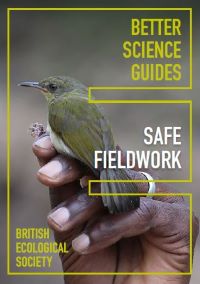
Fieldwork is how many of us fall in love with ecology. This guide provides practical tips for before, during and after your time in the field, and promotes a safe and inclusive fieldwork culture. The guide is built upon advice from those who have been into the field themselves and learnt many things along the way.
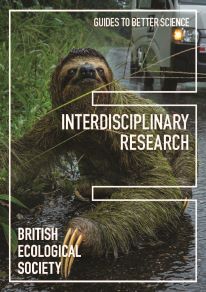
Many messages emerging from scientific panels on the state of biodiversity, climate change and the planet emphasise the importance of greater integration between disciplines. But there’s no textbook to read before diving into interdisciplinary work. This guide is for researchers embarking on their first interdisciplinary project. It covers practical steps to take when conceiving, planning, or participating in an interdisciplinary project.
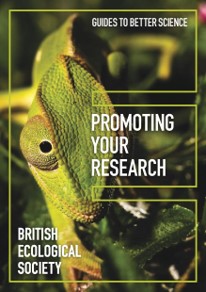
For everyone working in science, promoting your research, and yourself as a researcher, is increasingly important. With advice on working with press offices, journalists, social media, digital media and more, this guide is designed to help people at all career stages find the best way to promote their research.
“We all need to promote our research but few of us are lucky enough to be taught how our research can end up in a newspaper. This guide gives people a way of using tools that are available, to make sure their research reaches the people it needs to.” Professor Jane Hill, University of York
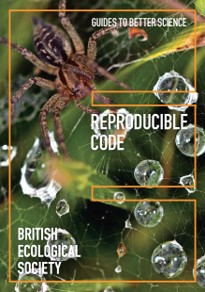
The way we do science is changing – data are getting bigger, analyses more complex, and governments, funders and the scientific method itself demand transparency and accountability in research. One way to deal with these changes is to make our research is reproducible, especially our code. This guide covers all the basic tools and information you need to start making your code more reproducible.
“We have a diverse multidisciplinary group spanning microbial ecology, imaging, clinical work and wastewater systems. Everyone found something useful to directly improve their practice in the Guides to Reproducible Code and Data Management. Can’t recommend them highly enough for all levels from undergraduate to academics.”
Dr Joe Parker, National Biofilms Innovation Centre
See what people thought of this Guide on Twitter
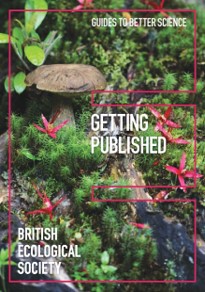
生态学与进化学论文发表指南 [translated version – Simplified Chinese]
Publishing research results is a necessary part of the scientific process and is crucial for an academic career. This guide for early career researchers explains how to get published, with advice on selecting the right journal, writing effectively and dealing with decision letters. Editors from across the BES journals provide their own tips and lessons-learned from publishing in ecology and evolution.
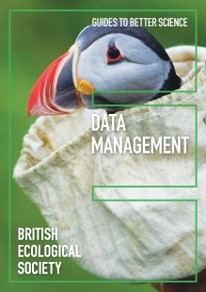
Good data management is fundamental to research excellence. It produces high-quality research data that are accessible to others and usable in the future. This guide for early career researchers explains what data and data management are, and provides advice and examples of best practices in data management, including case studies from researchers currently working in ecology and evolution. This edition (2018) was updated in collaboration with GBIF and includes sections on international biodiversity data standards and data citation.
“This guide gives a really useful up to date overview of good data management practices with hints, tips, checklists and quotes regarding the planning, creation, processing, documenting, preservation, sharing and re-use of data.”
Graham Beddoe, Quality Manager, Plymouth Marine Laboratory
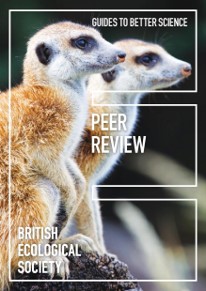
Reviewing for scientific journals is a skill, one that is learned through practice and experience. This guide for early career researchers provides a succinct overview of the many aspects of peer review, from hands-on practical advice about the actual process to explaining the less tangible aspect, such as reviewer ethics.
We value your feedback. If you have found these guides useful we would love to hear from you! Likewise, if you have comments on how they can be improved, or ideas for new guides, please get in touch with Kate Harrison.